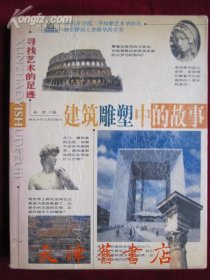
André Citroën: The Henry Ford of France(货号TJ)安德烈·雪铁龙:法国的亨利·福特
¥ 168 ¥ 45 九五品
仅1件
作者John Reynolds; Chris Goffey (foreword)
出版社St. Martin's Press / Palgrave Macmillan
ISBN9780312165055
出版时间1996
版次1
印刷时间1996
印次1
装帧精装
开本25.7*16.8
纸张胶版纸
页数256页
定价45元
货号TJ0616-J872-c690
上书时间2022-07-27
- 在售商品 暂无
- 平均发货时间 4小时
- 好评率 暂无
- 最新上架
商品详情
- 品相描述:九五品
- 商品描述
-
本书为英语原版,精装本,原定价45.00美元,净重800克,馆藏自然旧。【图书分类:历史、地理 > 传记 > 各国人物传记 > 法国人物传记 > 人物传记:按学科分 > 经济】This illustrated biography reviews Citroen's life and work and catalogues the cars he produced, in order to restore his reputation as one of the most progressive and imaginative characters in the history of the motor car.
The book recalls his privileged childhood as the son of a prosperous Jewish immigrant in Paris during the late nineteenth century and describes his education at the elite Ecole Polytechnique. It records the start of his meteoric career, which began with the manufacture of helical gears (the inspiration for the famous Citroen double-chevron badge), and continued with the production of munitions during the First World War. It goes on to chronicle his prodigious accomplishments as a motor-magnate in the 1920s when he was responsible for the first mass-produced and mass-marketed vehicles in Europe, a feat of industrial creativity that earned him his reputation as the Henry Ford of France. His story comes to a sad end in the Great Depression of the mid-1930s when, just after the launch of his most famous model, the revolutionary Traction Avant, his company went bankrupt and he died.
This first published account of Andre Citroen's life and work to be available in English gives a fascinating insight into his complex character, and goes some way towards explaining his extraordinary success and failure. It shows how his mastery of salesmanship and publicity, combined with his love of risk-taking, made him an international celebrity whose adventurous business policies and extravagant way of life consistently created headline news. The book also provides a series of vivid snapshots of the momentous times in which he lived, from the belle epoque and the First World War through the roaring twenties to the wasted years of the 1930s, when his ideals of social and economic progress through international cooperation were destroyed, as he himself was, by the Depression and the rise of fascism.
From Publishers Weekly:
A graduate of the Ecole Polytechnique, France's most prestigious engineering college, Citroen (1878-1935), from a well-to-do Jewish family, was a hugely successful entrepreneur. His background enabled him to recognize the value of double-helical gears produced in Poland, sleeve-valve engines made in Belgium and mass-production methods developed in the U.S., a country with which he felt a special affinity. Large-scale industrial production, notes the author, "was the engineering challenge that really interested" Citroen. Always an innovator, he began direct-mail marketing, billboards and skywriting ads in France, so that by the early 1930s, Citroen was the fourth-largest automobile manufacturer in the world, after America's big three. A cultivated sophisticate fond of good living and gambling, Citroen overextended himself during the Depression, demonstrates Reynolds in his well-documented, instructive biography, lost control of his firm and died soon afterward. This biography is not just for car lovers but has much to say about the effects of industrial growth in the West and, even more interesting, about the role that subtle anti-Semitism may have played in the demise of Automobiles Citroen. Reynolds is a British freelance writer.
From Booklist:
The French call automaker AndreCitroen the "most famous unknown man of our century," and he has also been labeled "the Henry Ford of France." Citroen, who died of stomach cancer in 1935 as his company faced insolvency, was certainly in his own way as colorful a figure as Ford. He was flamboyant and seemingly cared little about money; at the same time, he was socially and politically progressive. Citroen can be credited with bringing mass-production capability to France, which resulted in the successful munitions manufacturing effort of World War I. He built the largest automobile company in Europe, and each Citroen model bore the stamp of his personality. His 1920s advertisements targeted women, and he more than anyone else was responsible for the "motorization" of Europe. Reynolds, an auto enthusiast and freelance writer who has worked for Citroen, Ford, and Volkswagen, provides the well-documented detail that brings the accomplishments of Citroen life in this first English-language biography. David Rouse
From Kirkus Reviews:
An uncritical biography of one of France's premier automakers, from a British journalist who takes a far greater interest in machines than in men or women. Drawing on archival and secondary sources, Reynolds offers a cursory rundown on his subject's life and times. The son of a Jewish diamond merchant who had moved to Paris from Amsterdam, Citron graduated from the prestigious cole Polytechnique in 1900 at the age of 22. Having fulfilled his military service, young Andr began manufacturing gearwheels, a high-tech enterprise in which he fared well. After WW I (during which he established and ran an important munitions factory for the government), Citron built the first of many motor cars bearing his name. A technocrat rather than a practical engineer in the mold of his acquaintance Henry Ford, he was at least as concerned with developing mass consumer markets and volume-production techniques as with advancing the state of the automotive art. His eponymous company nonetheless created half-track vehicles that proved their mettle on showcase expeditions through Africa, Antarctica, Central Asia, and other exacting venues. It also rolled out the Traction Avant, a breakthrough design notable for such forward-looking features as an automatic transmission, front-wheel drive, and hydraulic brakes. Although the firm and its founder appeared to prosper during the Roaring '20s, the Great Depression took a severe toll. Creditors (led by Michelin) gained control of Automobiles Citron in 1935, the same year its erstwhile patron died of stomach cancer. While an English-language account of Citron's accomplishments and failures is long overdue, freelance automotive journalist Reynolds misses his opportunity. Among other shortcomings, the tech-talk narrative devotes so little attention to matters of business and character that the company's precipitous fall from financial grace will come as a real shock to readers unfamiliar with the bon vivant proprietor's willingness to run immense risks. Flat and unrevealing. (b&w photos)
-

【封面】
-

【目录】
-

【内页】
-

【内页】
-

【插图】
-

【内页】
-

【插图】
-

【插图】
— 没有更多了 —

















以下为对购买帮助不大的评价